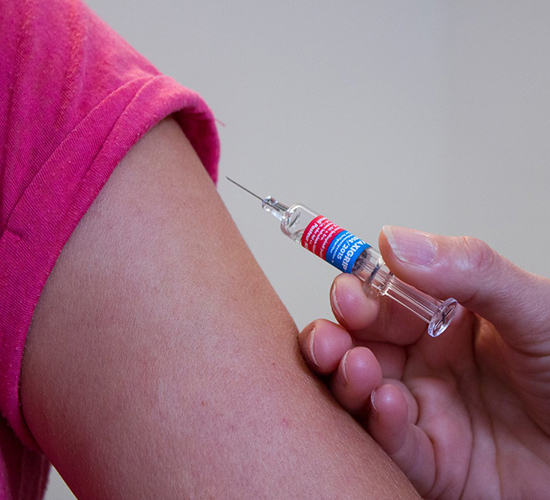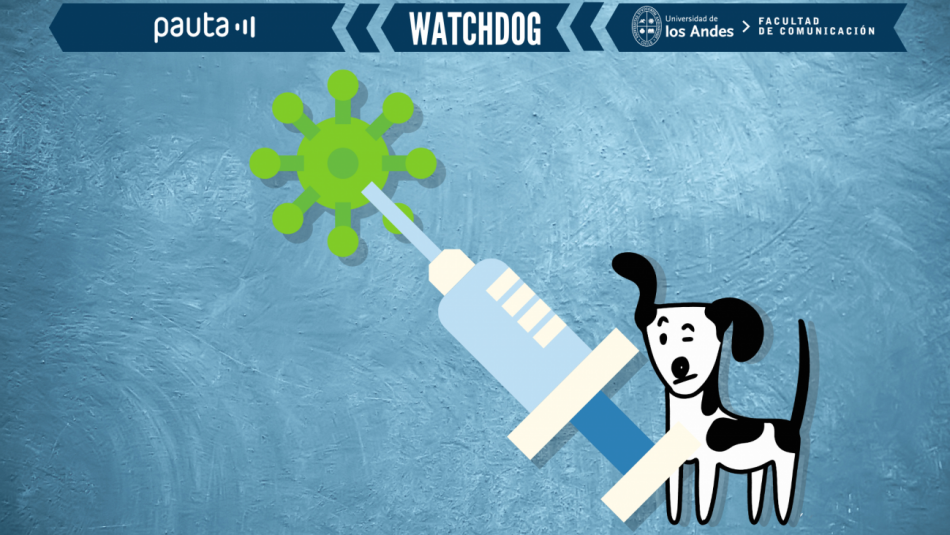Third dose of the vaccine: Why, when and how it would be applied

The reasons why a booster dose is needed for those vaccinated against covid and what the mechanism is is part of what the Contestadog responds to.
Over the past few weeks, the question of whether we will need a third dose of the covid vaccine has become a topic of scientific discussion and sunday lunches.. If you talked about it with your friends, family members or office mates, to the Contestadog, of WatchDog's GUIDELINE, got the following question: will I need a third dose?
Vaccinated and with our mobility pass we went to find the answer. In Chile, by Tuesday, July 20, they had completed the vaccination process (either the two-dose scheme or a single dose) 11,843,564 people, i.e., on the order of 78% of the target population.
Despite the high rate of inoculations, the Ministry of Health has already begun preparing for the third dose, which could provide greater protection to people against the delta variant and those who present themselves in the future.
Countries such as Israel have already started this process, while others like the United States, Germany and France are waiting for results that will ensure its implementation in the entire general population and not just groups or special cases. In Chile, studies are also being carried out before giving the yes.
The Undersecretary of Health, Paula Daza, assured that the current scenario suggests that a third dose will be needed. When? The date has not been confirmed, but there is talk that it should be six months after completing the scheme to boost the level of antibodies.
Health experts say that the question of whether a third dose will be needed is not the only one, but you also have to ask yourself when and how to administer it.
By the way, there is talk of “third dose” because 96% of those who have the complete scheme have received inoculations consisting of two injections (as those of the Sinovac laboratories and Pfizer-BioNTech).
Why it's needed?
Sergio Lavandero, director of the Advanced Center on Chronic Diseases of the University of Chile, explains that “vaccines protect us from the coronavirus by generating in our body levels of defense against antibodies and protective cytotoxic T lymphocytes”. When these defense levels go down after a few months, a third dose may be needed to raise them again.
Mario Rosemblatt, immunologist and executive director of Science Foundation & life, shares that “it is normal that once the antigen disappeared - either from the vaccine or from a natural infection with the virus-, antibodies go down or go away. The important thing is that the immunological memory remains both cellular and antibody”. At that time a third dose would be necessary, since the permanence of the “immunological memory” it is not entirely clear in the case of those vaccinated with Sinovac.
According to figures from the Ministry of Health, 75% of the Chilean population immunized was vaccinated with Sinovac. This is an inactivated virus vaccine, so it has a lower immunogenic capacity than messenger RNA vaccines, and a greater possibility that the duration of immunity of the vaccinated is shorter. The World Health Organization (WHO) recommended that those vaccinated with Pfizer-BioNTech and AstraZeneca-Oxford should also consider a third dose, and not just those vaccinated with Sinovac.
Is it possible to mix vaccines from different laboratories?
One of the biggest unknowns is whether people will be able to get different vaccines than they had in their first and second doses.. According to Lavandero, “we must wait for the results to determine if we revaccinate with the same previous vaccine or if there is addition of a different. The latter also requires prior safety studies”.
The unknown should be resolved with the clinical study initiated by the Ministry of Health on July 9, in which 560 volunteers participate and which will allow the completion of the best design to combat covid-19 and its variants.
The technique of mixing vaccines is already being used in Chile with those who received the first dose of AstraZeneca and completed their scheme with Pfizer. The question is what is the best mechanism: combine vaccines or keep one for the third.
Something that Rosemblatt and Lavandero agree on is that the application of the third dose should be done in the same order that was applied this year, i.e., giving priority to seniors, health personnel, risk groups and then in order from highest to lowest age.
How often will we have to get vaccinated?
Both in Chile and in other countries there is still no consensus on how often the population should be vaccinated to protect them from COVID-19. However, Mario Rosemblatt adds that “we don't have much evidence about it, but the few known cases indicate that after six months there are no problems and with a good response”.
WatchDog PAUTA is a joint fact-checking project between the Faculty of Communication of the Universidad de los Andes and PAUTA. It seeks to take issues on the agenda and track its veracity from a positive perspective, non-inquisitorial.
The Contestadog section answers questions that come from the audience through social networks.
